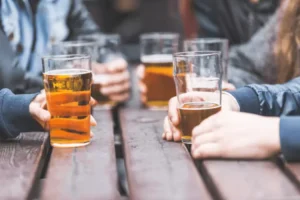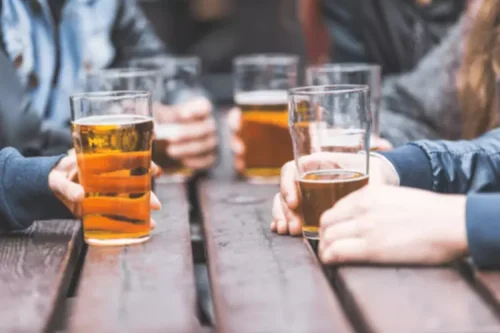
For individuals already dealing with anger issues, alcohol can intensify and magnify these underlying challenges. This amplification occurs due to alcohol’s impact on the brain’s neural pathways, particularly those involved in emotional regulation. Understanding the psychological impact of these physiological changes is crucial for individuals in early sobriety. Anger can serve as a protective emotional response to underlying feelings of vulnerability, fear, or sadness that emerge as one confronts past actions and the recovery journey at large.

The Impact of Alcoholism and Anger on Relationships and Personal Well-being
- With some insight into factors that can cause rage or aggression while drinking, you can take steps to avoid certain behaviors.
- The treatment should target both the person’s mental health and substance use disorder as two parts of a whole.
- This population is more likely to show trait anger with higher scores, low anger control, high expression of anger, and tendencies towards aggression compared to non-users.
- When you check in on your anger levels, you can better assess what your needs are.
- After much consideration, he eventually joined an alcohol treatment program as I helped him grieve his wounds and manage his anger.
Plummeting serotonin levels hinder the brain’s ability to regulate anger and are linked to impulsive aggression (5). Our state-specific resource guides offer a comprehensive overview of drug and alcohol addiction treatment options available in your area. It is important to note that anger is a normal human response, but it can be warped and misdirected, causing problems for you and those around you. You may fear something or someone, but typically the greater fear is that of losing face, appearing ridiculous, or being abandoned. Likewise, your pain may involve physical pain, but often it includes the emotional pain that results from loss, a feeling of unfairness, or someone else’s words and actions.

SMART Recovery vs. A.A. – Is One Better?

Some people may become more angry or aggressive when they drink, in part because of alcohol’s effects on brain chemistry. Additionally, the amygdala area of the human brain is where we process emotions. And our orbitofrontal cortex (OFC), which is part of the PFC, helps calm feelings of rage and aggression. Research suggests several factors may be involved, including personality, genetics, social considerations, brain chemistry, and brain changes.
- The search was conducted by two independent authors (HVL and AE) who first analyzed the titles and abstracts and then selected manuscripts for full-text reading.
- Interrupting the anger response after recognizing it early can help you manage angry feelings before they result in inappropriate actions.
- However, some studies have been done to better understand who is more at risk.
Prescription Drug Addiction Facts and Statistics
Drinking alcohol releases norepinephrine into the brain, a stimulant that can decrease our inhibitions while increasing our impulsivity. Alcohol also depresses the part of the brain in charge of rational decision-making. Many of us have known at least one person who “can’t hold his or her liquor.” Or perhaps we are that person. We just know that once the drinks start flowing things can get pretty ugly. Once this happens, many end up thinking that their recovery https://ecosoberhouse.com/ is worthless, and they might decide to no more extended care about their recovery. Feelings of anger can be so powerful that they cloud their judgment and second-guess their reasons for being sober.
It has also been reported that both the males and females are equally aggressive when verbal aggression is at play (Archer, 2004; Björkqvist, 2017). In an experiment conducted by Giancola and Zeichner (1995), 128 participants (64 males and 64 females) performed a task where they gave an electric shock to the fictional opponents, which included both the genders. The participants were assigned to either alcohol, a placebo, or a sober group. The researchers found that the intensity and duration of shock were higher in the men from the alcohol group, while only shock duration was increased in women.
What is Hepatitis C? Causes, Symptoms & Treatment
Contrary to this, a single administration of 0.5 per thousand alcohol was shown to reduce frontal interhemispheric connectivity in female participants, but not in male participants (Hoppenbrouwers et al., 2010). Intergender neurological and behavioral responses to alcohol are also influenced by ethanol metabolism (Arthur et al., 1984) and influences of hormones such as testosterone, cortisol, estradiol, progesterone, and oxytocin (Denson et al., 2018). The practical reasons for conducting this study are to assess whether it is relevant to include this feeling in therapeutic practices with users of psychoactive substances and determine which symptoms correlate with anger.

- If you believe you’re displaying more than one of these behaviors, you might be dealing with a dry drunk syndrome or another co-occurring disorder in your recovery.
- Because they’re naturally predisposed to be angry when they drink, this becomes a key part of their personality because they can’t control their drinking or their temper.
- One study published in a journal called Cognitive, Affective, & Behavioral Neuroscience sought to explore factors that make some people more aggressive when they drink.
- Alcohol accentuates or promotes the mental state of the drinkers at the time of consumption, fueling negative emotions such as aggressive behavior or positive emotional outcomes such as gregariousness and warmth.
- Repressing anger is not the same as coping effectively with it, because repression often results in physical symptoms too, like muscle tension and head, neck, or back pain.
To curb alcohol-fueled rage, it helps to know how you respond to drinking. A small 2015 study published in Translational Psychology investigated the role of this variation in impulsive and aggressive behavior while intoxicated (10). Drinking can have a relaxing or anxiety-relieving effect by mimicking the “chill-out” effects of GABA. At the same time, alcohol hinders the neurotransmitter glutamine, which has a stimulating effect. But once GABA is metabolized, it mostly converts to glutamine, causing excitement (6). Studies have shown that serotonin levels may begin decreasing within alcoholism and anger 30 minutes of that first drink (4).

0 Comments